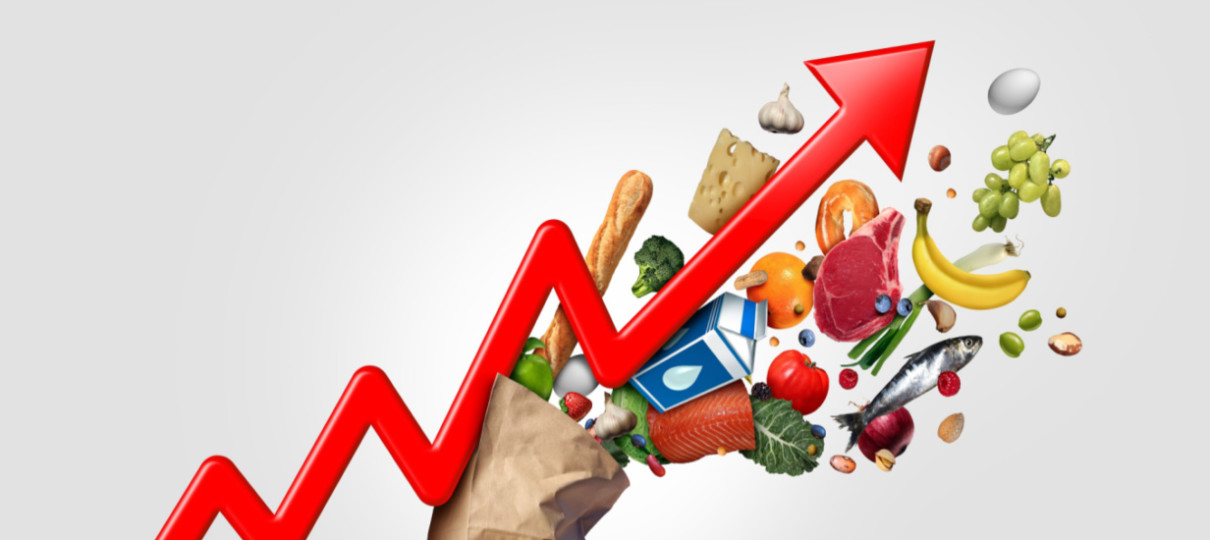This past Friday, the Bureau of Labor Statistics released the latest inflation data.
Not great.
The consumer price index rose 8.6% in May from a year ago, the highest increase since December 1981 – 41 years ago. Over the last year, food is up 10.1%, fuel is up 106.7%, and shelter costs are up 5.5%.
On the state of the economy, Jamie Dimon recently said this: "That hurricane is right out there down the road coming our way. We just don't know if it's a minor one or Superstorm Sandy. You better brace yourself."
Former Goldman Sachs CEO Lloyd Blankfein had an equally bleak outlook: “Overall for individuals, and certainly for individuals at the bottom quartile, it’s going to be quite difficult and oppressive."
To gauge the human-level impact of this poor economic climate, Breeze surveyed 2,003 adult consumers.
Nearly 90% have cut spending, and many question how much longer they'll be able to provide food for their families or pay the mortgage.
88% cut spending
Note: If you'd like to see the raw data or data broken down by state, gender, race, age, etc., please email me at [email protected]
- 2,003 adult Americans were asked the following: "As a result of inflation and rising prices, have you had to cut back on your spending?" 88% answered "yes," while 12% have not reduced spending.
For those who have cut spending, we then asked where. Since respondents could select all that apply, the percentages will add up to more than 100%.
I’ve had to not only cut back on groceries, but remove my grocery and restaurant budget entirely some months to be able to afford gas. I’ve also reduced pet food expenses and removed plans to go on vacation in the Fall.I’m now evaluating using that time off to do contract work to earn extra cash. I also use my credit card more than ever before, when I used to just use it for emergencies.Andrea Ritter, digital marketing & communications manager
75% worried about providing food for their families
The ramifications of inflation have been far-reaching and personal for the sweeping majority of consumers.
- Amongst those that have cut back on groceries or restaurants, 75% said they are worried about providing food for themselves or their families as a result of inflation and rising prices. 42% from this group have never previously worried about this.
- Amongst those that have cut back on gas, 93% said they are intentionally driving less, which 58% said has had a negative impact on their work or social relationships.
- Amongst those that have cut back on credit card or debt payments, 86% are worried this will result in an escapable amount of debt.
- Amongst those that have cut back on travel or vacation costs, 87% have had to cancel vacation plans to save money.
I think my number one pain point has been at the pump. With gas prices being so high, I’ve really had to start putting a lot of thought into what trips I really need to take and which ones can wait. I have also felt the pinch shopping for groceries; it’s one thing when a few items are more expensive, but when it seems like suddenly every item costs a dollar or two more, it adds up quickly.In fact, between gas and groceries, I’m in a bit of a catch-22 when it’s time to shop for groceries: Do I drive a bit further to the discount grocery store, or will that cost me too much in gas?Marcus Hutsen, business development manager
63% struggling to pay the mortgage or rent
For those poll participants currently making rent or mortgage payments, 63% indicated they are struggling to meet these monthly payments due to inflation and rising prices.
We followed up with this group by asking how much longer they'll be able to afford housing payments.
- Over the last couple of years, rabid homebuyers blew up the housing market. As inflation tightens the noose, it will interesting to see how long this new class of homeowners can manage their mortgage payments.
54% struggling to pay insurance premiums and may cancel some coverage
64% of respondents own some sort of supplementary insurance product (i.e. life, pet, or disability insurance), and 54% indicated they are struggling to pay monthly premiums as a result of inflation and rising prices.
For those struggling to afford monthly insurance premiums, we asked if they're considering cancelling coverage.
- With a healthy 77% of policyholders considering cancelling their supplemental insurance coverage, this illustrates the negative impact inflation can have on downstream sectors of the economy – like insurance.
59% reaching into dwindling emergency savings
59% of survey respondents have already started using an emergency savings fund to cover costs in this sluggish economy.
If inflation and rising prices continue, we asked this group how much longer these rainy day funds will last.
I have had to dive into my emergency fund given the recent turmoil. Previously I would go out at least three to four times a week for dinner with my friends or people from the office, but with the changes in fuel prices coupled with the cost of goods, it makes more fiscal sense for me to make dinner at home.Moreover, instead of grabbing a quick latte from the Starbucks near my office, I've invested in purchasing coffee beans from Wal-Mart. A recession seems to be dawning upon us so I've realized that I can't just rely on my income anymore, I need to start cutting down my costs as well - whether it's on groceries, nights out, or any extravagant vacations.Josh Tyler, CEO
- When cash savings start running low, consumers often have no other option but to turn to financing vehicles like credit cards, personal loans, or Buy Now Pay Later (BNPL). Massing consumer debt only adds fuel to the economic fire.
We next asked our 2,003 respondents if they have turned to credit cards or BNPL to cover costs during this inflationary period.
I've found it more difficult to pay my credit card bill on a monthly basis. In order to save some money, I'm giving BNPL precedence over cash. Paying for a new car or home in cash is difficult due to inflation. It's often cheaper to finance my purchases with a loan.Chris Muller, director of audience growth
- With savings low and debt usage high, it's a good time to highlight the value of owning disability insurance.
- Disability insurance replaces a portion of your income if physical injury, medical illness, or mental health issues leave you unable to work and earn a paycheck. It can provide an invaluable financial safety net to continue paying bills while you're out of work. This is doubly true if you have limited savings that would evaporate quickly if no regular paycheck was coming in.
- There's long term disability insurance, which is meant for severe or even permanent ailments. There's also short term disability insurance to cover injuries or illnesses that may only need a month or two of recovery, like a broken hand.
- Your disability insurance cost will vary according to your income and health. Get a free online disability insurance quote from Breeze in seconds.
Get a personalized disability quote in seconds.
67% dealing with negative mental health impacts
Economic downturns don't just hit the wallet; they impact our physical and mental well-being as well.
- 67% of respondents said inflation and rising prices have had a negative impact on their mental health.
- 81% said inflation and rising prices have made them more stressed than usual.
52% worried about job security
52% of poll participants are worried about their job security as a result of inflation and rising prices.
- This should come as no surprise because inflation is the dominant news story of the day, but not far behind are companies from Tesla to Coinbase implementing mass layoffs.
- With stories of corporate downsizing impossible to miss, it's easy to think "am I next?"
Consumers are worse off, but hope remains
No survey of consumer economics would be complete without asking respondents if they're better or worse off compared to a year ago and if they'll be better or worse off a year from now.
- The majority of consumers are in a worse financial situation now compared to a year ago.
- But on a positive note, more poll participants think their finances will be better a year from now compared to those who think things will be even worse next year.
Methodology
All data found within this report derives from a survey created and commissioned by Breeze and conducted online by survey platform Pollfish. In total, 2,003 adult Americans were surveyed. The appropriate respondents were found via Pollfish’s age filtering feature. This survey was conducted on June 6th, 2022. All respondents were asked to answer all questions truthfully and to the best of their abilities.
Full survey results
Notes: Some answers won't add up to exactly 100% due to rounding.
If you'd like to see the raw data or data broken down by location, gender, race, age, etc., please email me at [email protected]
1. As a result of inflation and rising prices, have you had to cut back on your spending?
- 88% answered "yes"
- 12% answered "no"
2. (If "yes" to Q1) Where have you had to cut back on your spending? (Select all that apply)
- 57% answered "groceries"
- 73% answered "dine-in restaurants/takeout"
- 62% answered "social spending (i.e. bars, concerts, sporting events, golf, etc.)"
- 63% answered "consumer spending (i.e. electronics, home & garden, clothes, luxury items, etc."
- 44% answered "gas"
- 35% answered "credit card/other debt payments"
- 54% answered "travel/vacation"
- 23% answered "pet spending"
- 1% answered "none of the above"
3. (Asked to those who answered "groceries" or "dine-in restaurants/takeout" to Q2) As a result of inflation and rising prices, do you worry you will be able to provide food for yourself/your family?
- 75% answered "yes"
- 25% answered "no"
4. (If "yes" to Q3) Have you ever previously worried about being able to provide food for yourself/your family before this?
- 58% answered "yes"
- 42% answered "no"
5. (Asked to those who answered "gas" to Q2) As a result of inflation and rising prices, have you been driving less intentionally to save money on gas?
- 93% answered "yes"
- 7% answered "no"
6. (If "yes" to Q5) Has intentionally driving less had a negative impact on your work and/or social relationships?
- 58% answered "yes"
- 42% answered "no"
7. (Asked to those who answered "credit card/other debt payments" to Q2) As a result of inflation and rising prices, do you worry that cutting back on your credit card and/or other debt payments will result in an inescapable amount of debt?
- 86% answered "yes"
- 14% answered "no"
8. (Asked to those who answered "travel/vacation" to Q2) As a result of inflation and rising prices, have you had to cancel travel/vacation plans to save money?
- 87% answered "yes"
- 13% answered "no"
9. Has inflation and rising prices had a negative impact on your mental health?
- 67% answered "yes"
- 33% answered "no"
10. Has inflation and rising prices made you more stressed than usual?
- 81% answered "yes"
- 19% answered "no"
11. Do you currently make rent or mortgage payments?
- 74% answered "yes"
- 26% answered "no"
12. (If "yes" to Q11) As a result of inflation and rising prices, have you struggled to make rent or mortgage payments?
- 63% answered "yes"
- 37% answered "no"
13. (If "yes" to Q12) How much longer do you anticipate you’ll be able to make rent or mortgage payments before it becomes a very serious problem?
- 31% answered "It already is a very serious problem."
- 30% answered "1-3 months"
- 22% answered "4-6 months"
- 8% answered "7-9 months"
- 10% answered "10 months or more"
14. Do you currently own any types of supplementary insurance products (i.e. disability, life, pet, dental, vision)?
- 64% answered "yes"
- 36% answered "no"
15. (If "yes" to Q14) As a result of inflation and rising prices, have you struggled to pay monthly premiums on your supplementary insurance products?
- 54% answered "yes"
- 47% answered "no"
16. (If "yes" to Q15) Are you considering canceling any of your supplementary insurance coverage as a result of inflation and rising prices?
- 77% answered "yes"
- 23% answered "no"
17. As a result of inflation and rising prices, have you had to start using an emergency savings fund to cover costs
- 59% answered "yes"
- 41% answered "no"
18. (If "yes" to Q17) If inflation and rising prices continue, how much longer do you anticipate your savings will last?
- 23% answered "less than 1 month"
- 31% answered "1-3 months"
- 27% answered "4-6 months"
- 11% answered "7-9 months"
- 9% answered "10 months or more"
19. As a result of inflation and rising prices, have you increased your credit card and/or Buy Now Pay Later usage (Select all that apply)?
- 47% answered "yes, credit card"
- 29% answered "yes, Buy Now Pay Later"
- 37% answered "none of the above"
20. As a result of inflation, rising prices, and the current economic climate, are you worried about your job security?
- 52% answered "yes"
- 48% answered "no"
21. Compared to this time last year, do you believe you are in a better or worse financial situation?
- 23% answered "better"
- 52% answered "worse"
- 26% answered "about the same"
22. A year from now, do you think you will be in a better or worse financial situation?
- 41% answered "better"
- 31% answered "worse"
- 29% answered "about the same"










